
I n the middle of their tour of this cool, calm ground- floor flat in south-east London, Will and Lena Gottelier are keen to highlight a stretch of guttering outside the kitchen window. “That pipework is very special. It was the last job on our renovation to-do list,” Will explains. “And six hours later Lena went into labour.”
In fact, baby Monty had been incredibly obliging, arriving six days after his due date, to enable his parents to finish this labour of love.
Monty’s arrival came almost three years after the couple moved into the flat, their first home. They saved £20,000 for a deposit by living in a guardian property — an old youth club in Kidbrooke — for two years, paying just £400 a month, including bills.
Because of London’s soaring property prices, the couple considered moving to Birmingham but settled on Plumstead, buying their one-bed flat for £250,000 in 2018. “It is still relatively affordable here and we loved the atmosphere, the green spaces and cafes,” says Lena.
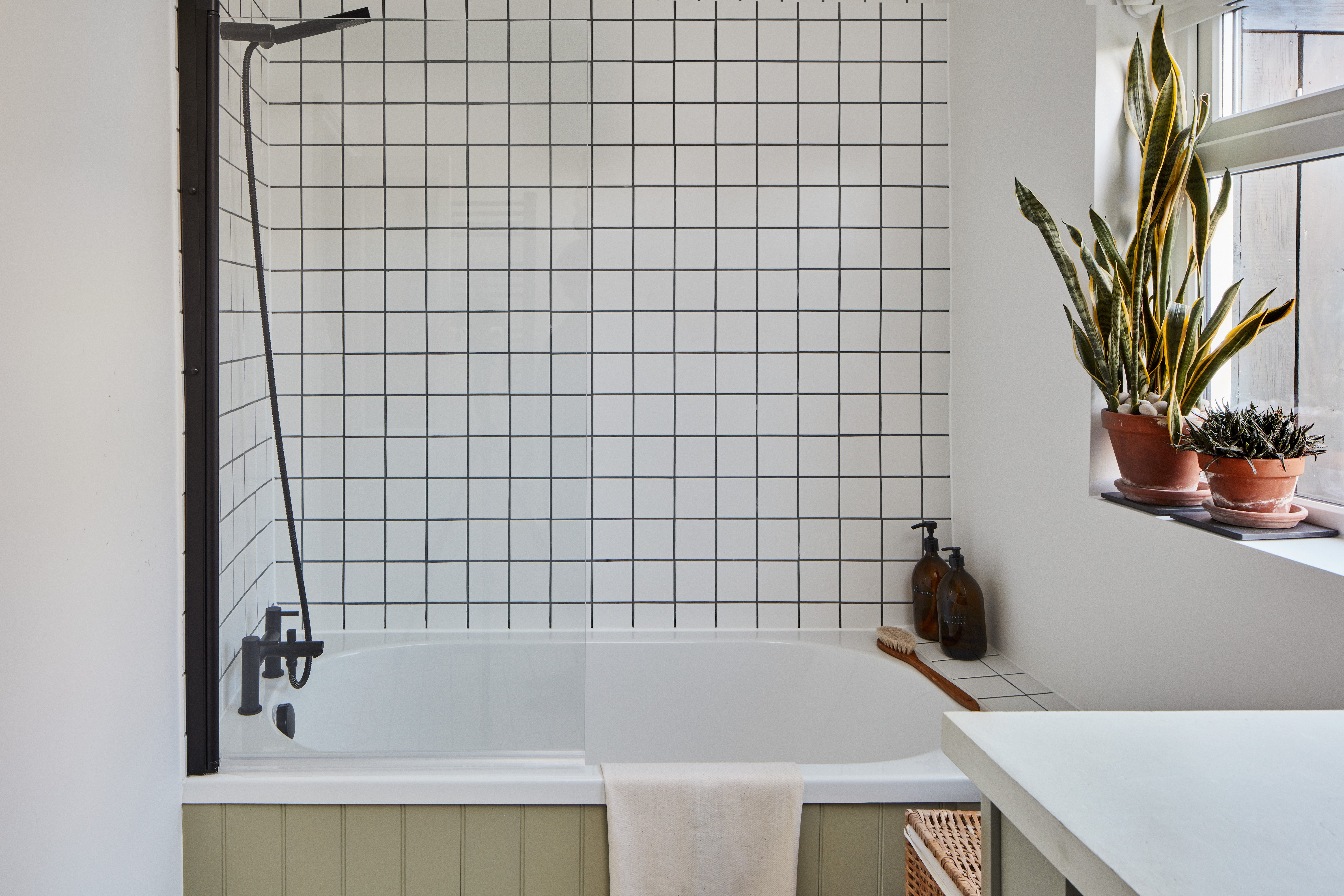
The flat, in a Victorian terraced house, was not inspiring. “There had been some dodgy DIY but not much in the way of proper maintenance and it was obvious that the previous owner was a smoker. The galley kitchen was cramped but the other spaces felt generous and the bones of the place were good,” says Will.
To maximise their modest renovation budget of about £20,000, the couple planned to do almost all the work themselves, fitting it in around their careers. Will works part-time for award-winning studio Architecture for London and the couple founded their own architecture, research and teaching practice, Becoming X, in 2016.
“Our passions are experimental preservations, where we take existing buildings and make something new, and community projects like the Herbert Road Green Oasis community garden that we’ve been working on here in Plumstead,” says Lena.
Future proofing
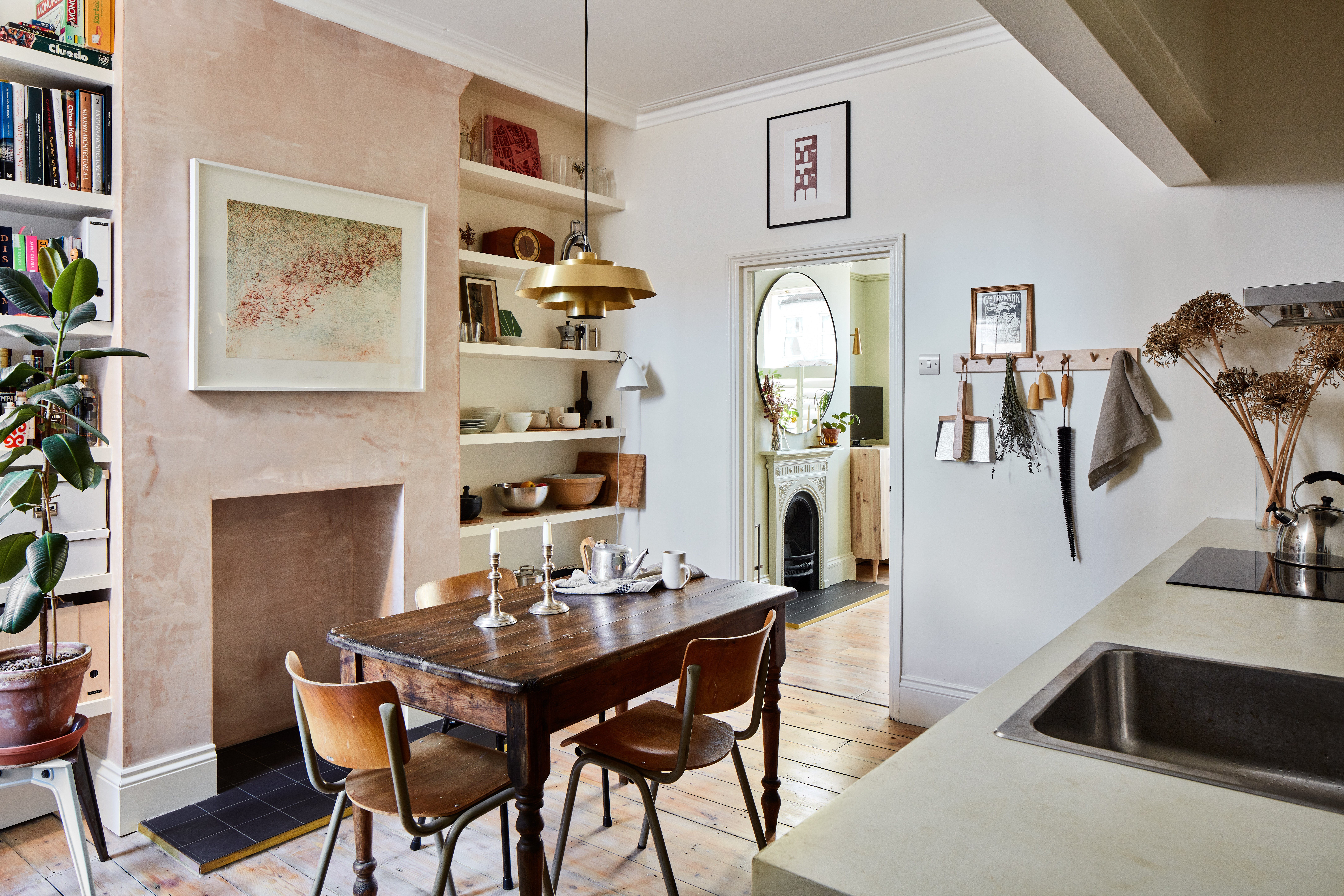
Between them, the couple have worked on a lot of period property projects. “We always knew we’d be very hands on with this,” says Will. When they got the keys in January 2019, they began by taking up the floorboards to lay insulation.
The couple’s architectural ethos is all about being environmentally conscious, so getting the place properly insulated was crucial for them and, at about £500 for materials, it was a great investment too.
A typical layout for Victorian conversion flats sees the living room at the front of the house, a bedroom in the middle room and the bathroom and kitchen to the rear of the property. But in this case, the kitchen was in the second reception room, opening onto the living space. “So it was already closer to how we wanted to live, with the kitchen at the centre of the house,” says Will.
But they decided to extend the kitchen to swallow up the corridor that once ran alongside it, turning a skinny galley-style kitchen into a well-proportioned room with space for a dining table. “It’s a great way to make the most of the space,” says Lena.
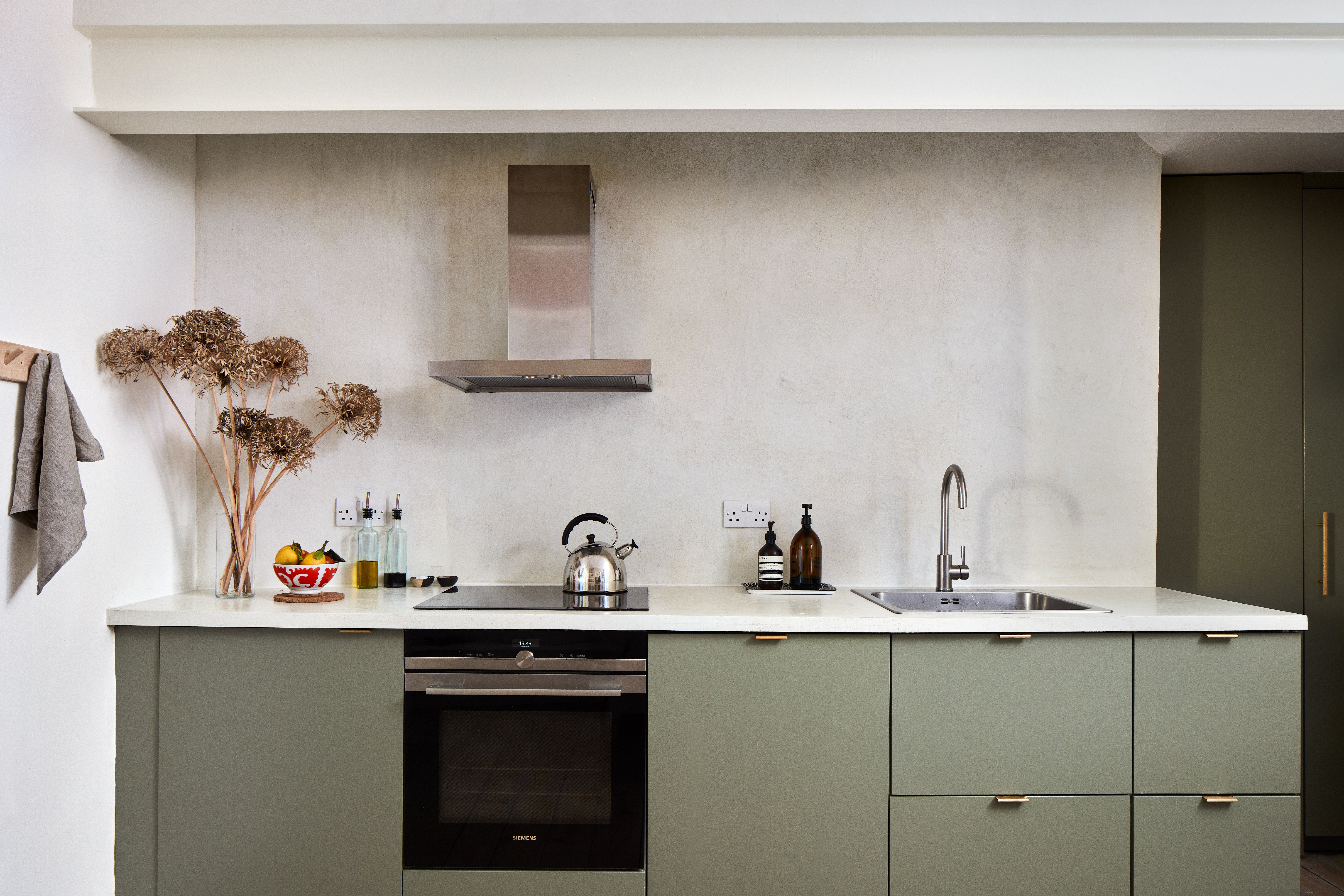
Saving with Ikea and YouTube DIY
The couple saved money by buying the kitchen cabinet carcasses from Ikea, using its finance service, and adding their own handmade doors, painted in Farrow & Ball’s grey-green Treron.
“We love many aspects of the Victorian style, but we also wanted an ultra-simple, modern kitchen. It’s important to pick and choose the elements that work for you,” explains Will.
They created the worktop and splashback wall using a micro-cement kit from Concrete Lab and tutorials. “I can’t imagine how we’d have managed this project without YouTube,” says Will.
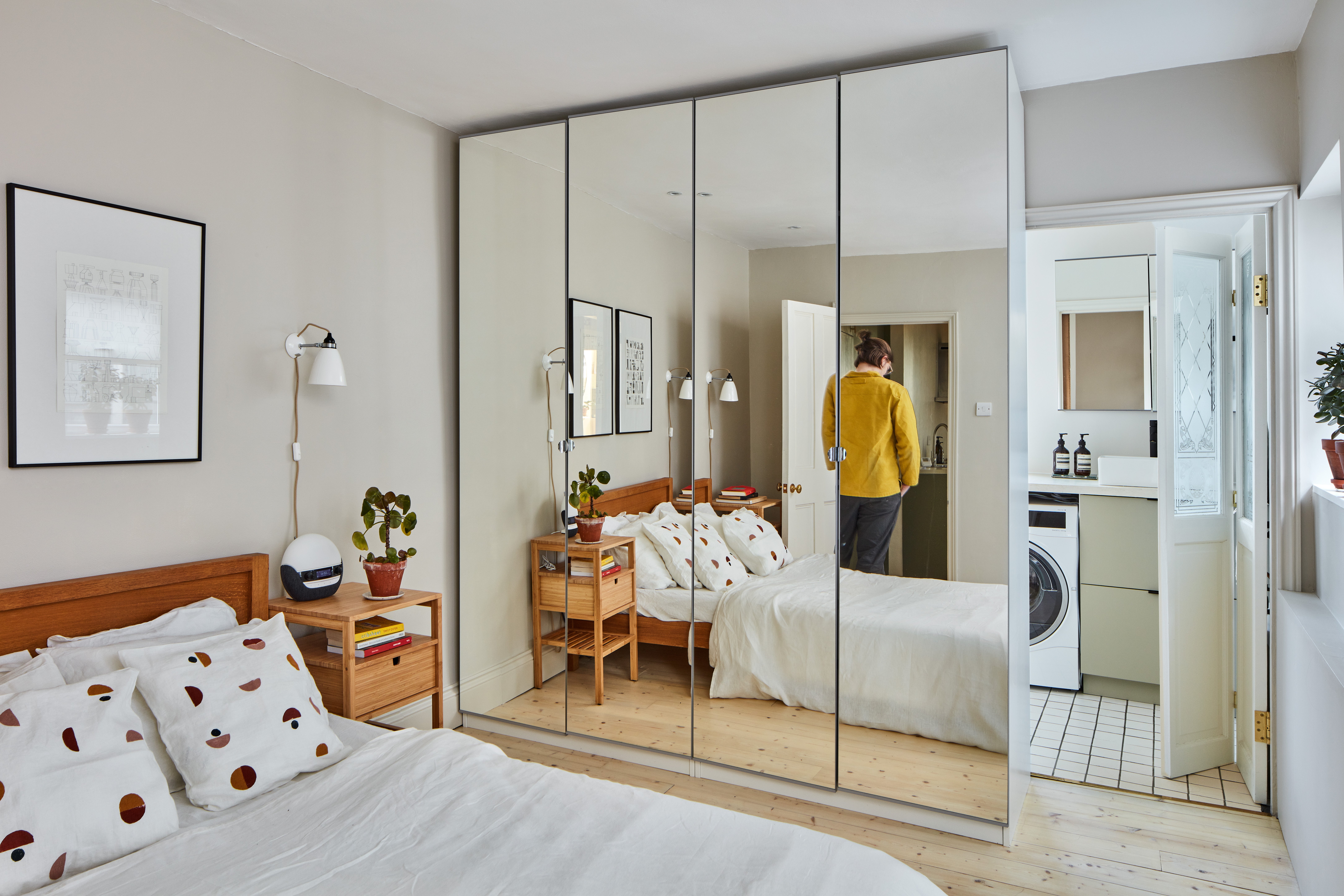
Past the kitchen there’s the guest WC, followed by the bedroom with a bathroom/laundry beyond. “This layout gives us a social zone and a private one, within a small flat,” says Lena.
Once the main work was done, the couple divided the rest of the jobs into weekend projects. Where others might feel exhausted at the prospect of two days of hard labour after the day job, this couple were raring to go. “We’ve had so much fun, it has been a joy to do, more like a hobby,” says Lena.
In doing almost all of the work themselves, they estimate they’ve saved about £20,000 on labour costs. “Although we did outsource some expert jobs, including fitting new windows, replumbing and fitting a new boiler,” says Will.
When it came to revamping the scruffy communal hall and repainting the exterior, Lena and Will created a win-win situation with the landlord and tenant of the upstairs flat: Lena and Will did all the work and paid for the materials, but also got to choose colours that worked with their flat’s aesthetic.
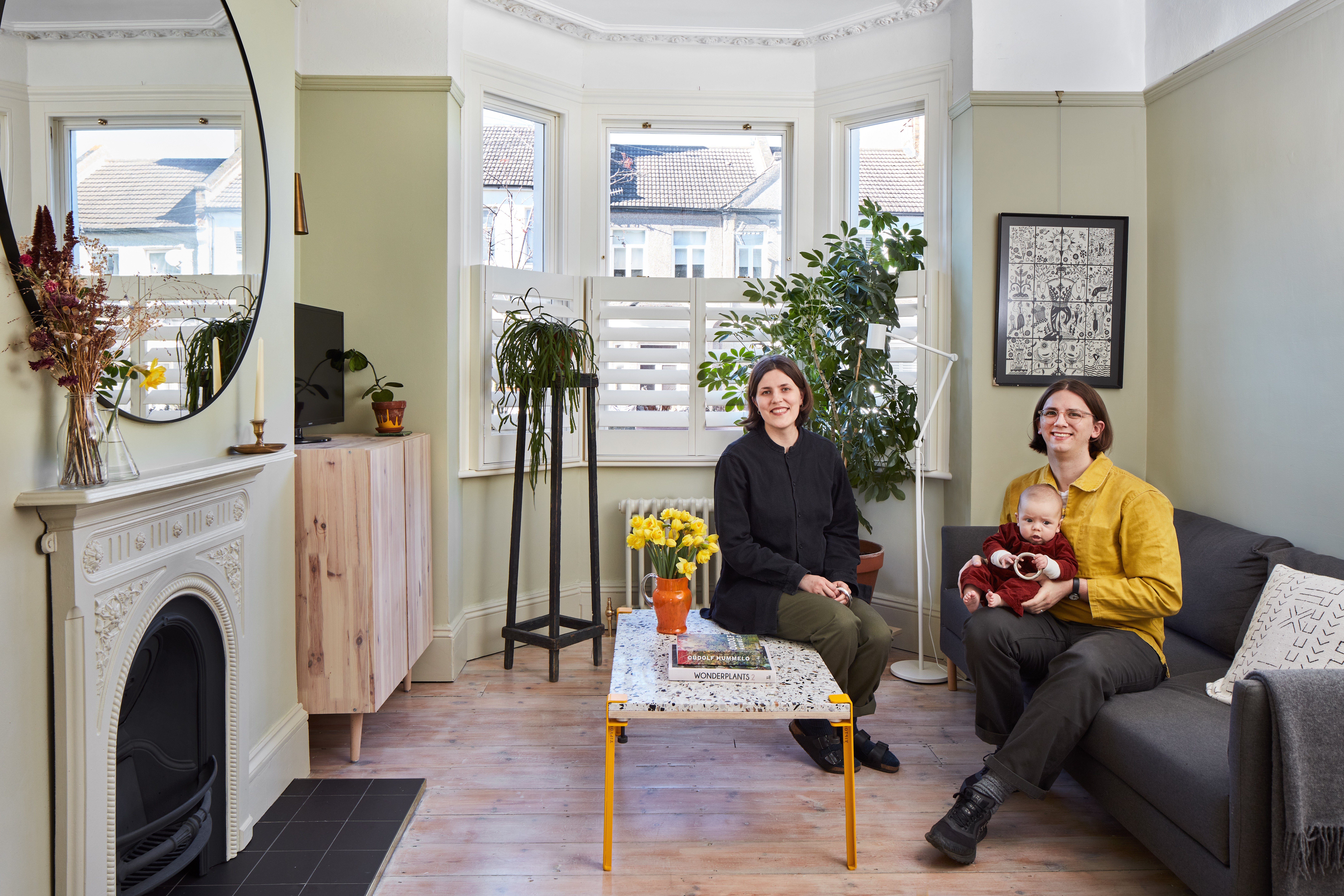
Decorating from the heart
Whilst they’ve never felt that this would be their forever home, throughout the renovations they have kept longevity in mind.
The couple removed, restored and reinstated everything they could, from skirting boards to flooring.
When they had to buy new, they ensured that the more expensive elements, such as the black quarry hearth tiles and the hardwood sash windows, were classics that are easy to live with and would stand the test of time. “We only used colour in places where it is removable or re-paintable,” says Lena.
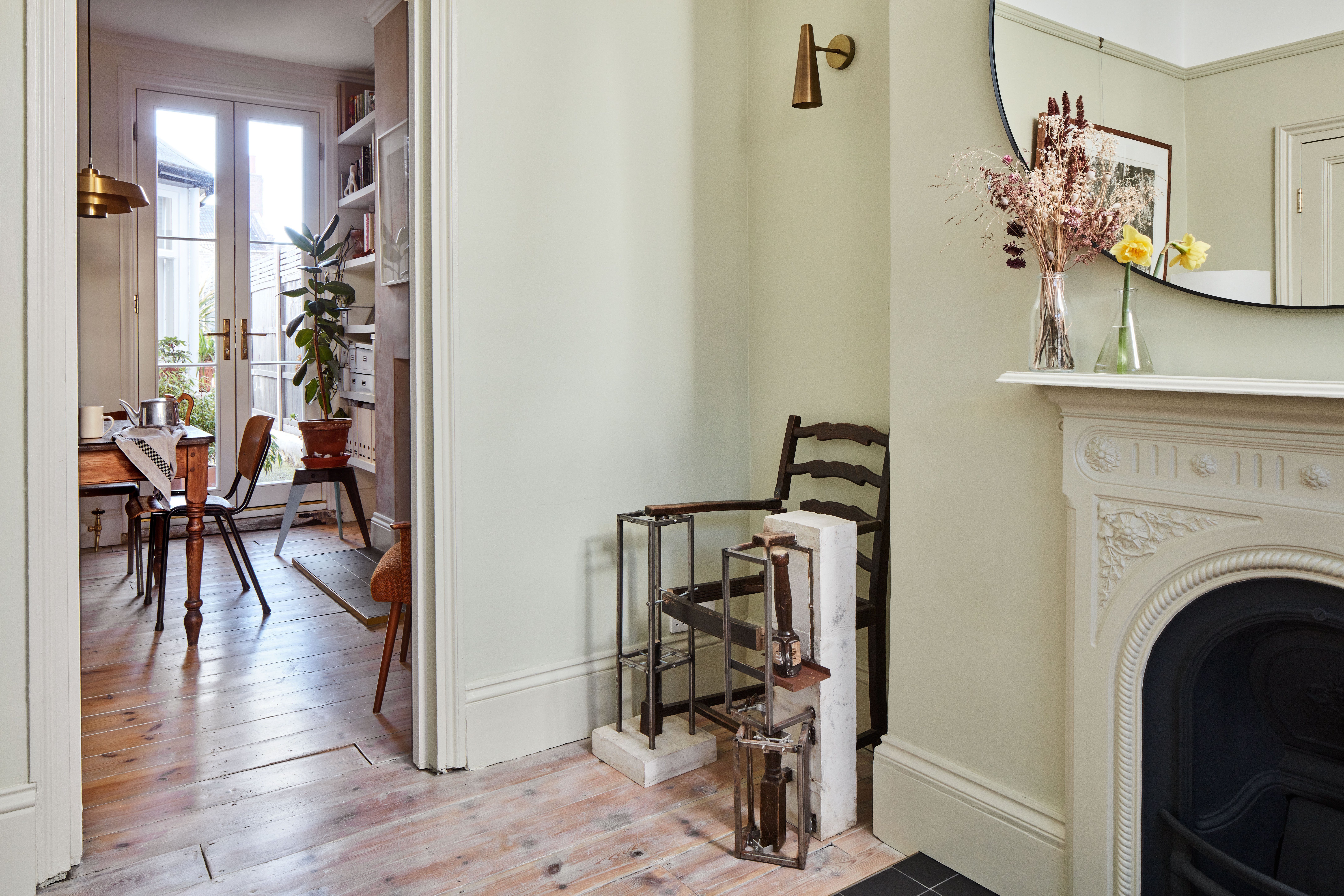
In furnishing this starter home, they were helped by Plumstead’s location on the outskirts of London, which makes it easy to whiz into Kent and Sussex in search of vintage bargains, such as the Danish brass light in the kitchen, sourced on a day out in Margate.
Despite all the careful thought and hard graft that the couple poured into this flat, they are keen to find their next project and the flat will go on the market for £310,000 via The Modern House next month.
They’ll be leaving with a raft of new skills. “We’ve definitely got more insight into our clients’ perspective now,” says Will. “Creating this flat has made us better architects.”
becomingx.net; @studiobecomingx
5 tips for a budget period renovation
1. Take the time to lay insulation underthe original floorboards, then you can enjoy their beauty without the draughts.
2. Maximise your storage space; studwork under the stairs can be easily adapted to create shelves.
3. If there are things like a boiler in the bedroom, pay for a session with an architect or interior designer to unlock the space.
4. Don’t rush into decorating — it takes time to understand how you’ll use the space. Take it slow.
5. Think long term and don’t be swayed by trends when choosing fixed finishes such as tiles. Go for a classic, subtle look that you won’t get tired of.







